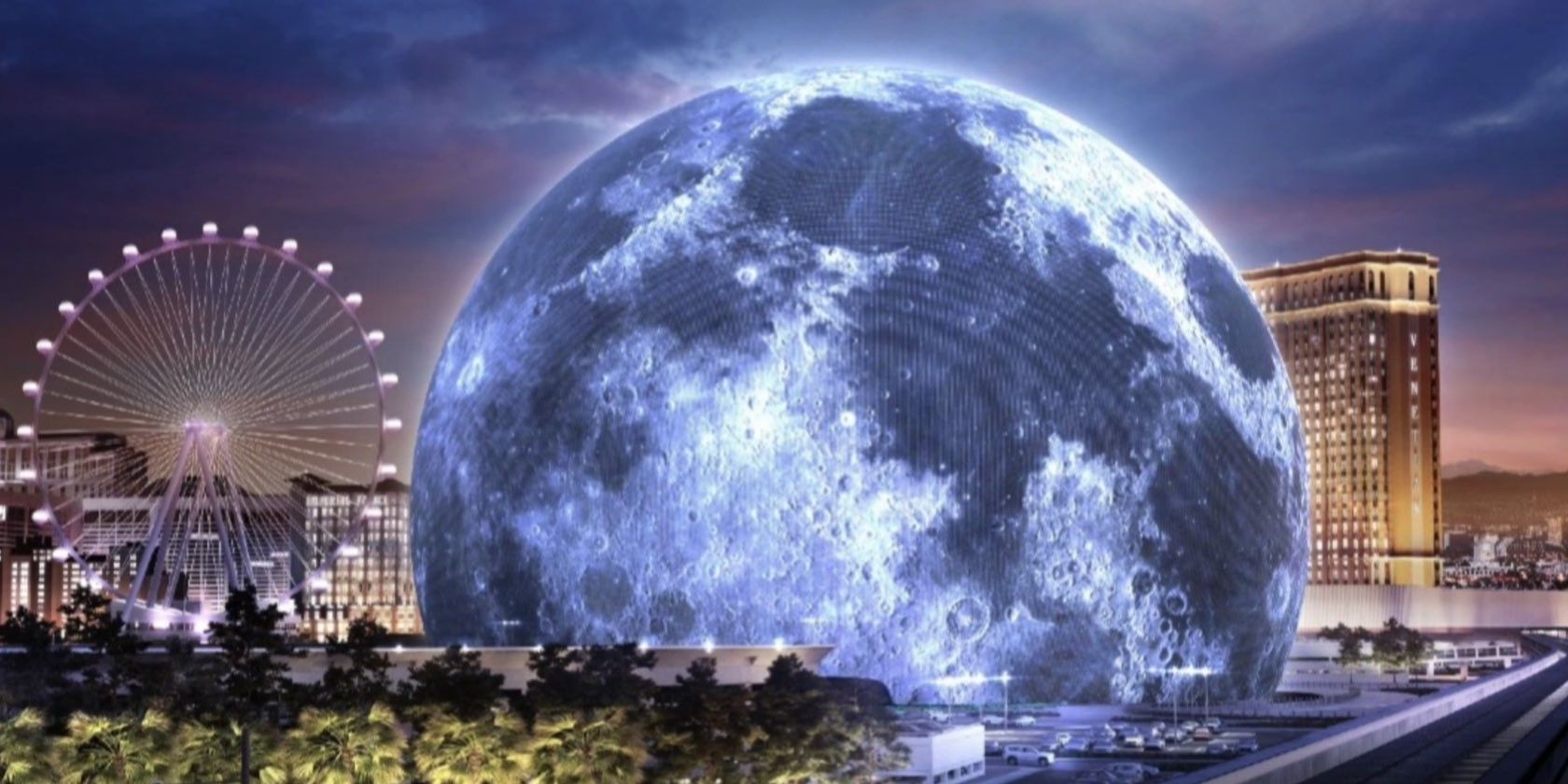As the opening of the MSG Sphere in Las Vegas draws near, the world is captivated by its grandeur and the potential for groundbreaking entertainment. However, amidst the excitement, there are questions about the security of this massive structure. Can the MSG Sphere be hacked? While the Sphere presents an enticing target for threat actors or daredevil hackers, hacking into this technological marvel would not be an easy feat.
The MSG Sphere is essentially a colossal eye, measuring 300 feet and covered in 1.2 million programmable LED screens, spanning an area of 580,000 square feet. With such a heavy reliance on technology and people to create awe-inspiring visual spectacles, it is evident that both humans and technology have their imperfections. Therefore, it is plausible that the Sphere can be hacked, as we have seen instances of billboard hacks in the past.
In November 2022, a digital billboard in Brisbane was hacked, and inappropriate content was displayed on the LED screens, as reported by The Guardian. Similar incidents occurred in Taiwan and Michigan in previous years. These were relatively minor hacks carried out by daredevils seeking notoriety. Hacking into the MSG Sphere, on the other hand, would require a significantly larger effort, likely sponsored by nation-states or orchestrated by skilled hacker groups.
Despite the potential for hacking, breaking into the Sphere would be an arduous task. It would demand an immense amount of time, resources, expertise, creativity, and coordination among the thousands of cyberattackers who would need to work around the clock. Successfully hacking into the Sphere would involve gathering information about its IT infrastructure and the team behind it.
Attackers would need to conduct thorough reconnaissance to gain knowledge about the digital infrastructure supporting the MSG Sphere. This would include understanding the hardware, software, and the individuals responsible for maintaining them. For instance, hackers might focus on SACO Technologies, the company that manufactures the LED screens used in the Sphere, and target employees who have access to valuable product blueprints. Additionally, employees or contractors of MSG Entertainment, specifically those involved in the project, would also be of interest during the reconnaissance phase.
While onsite hacking would bring attackers physically closer to their target, it presents its own set of challenges. The organizers of events at the Sphere already enforce rules prohibiting guests from entering the venue with certain electronic devices and large bags. However, smartphones are permitted onsite. Even if a resourceful hacker manages to sneak in hardware, the likelihood of it being within range of the Sphere’s systems is low.
Therefore, remote hacking and wardriving would be the most viable options for attackers seeking to breach the Sphere’s security. Wardriving involves searching for unsecured wireless networks and vulnerable devices in the vicinity of the structure. Remote hacking would primarily rely on phishing and social engineering tactics targeting the IT personnel working on the Sphere. Weak or stolen credentials, unpatched software or hardware vulnerabilities, and network misconfigurations could potentially be exploited. Another possibility is launching Distributed Denial of Service (DDoS) attacks to compromise the website’s servers and create opportunities for lateral movement within the network. However, a DDoS attack on the booking platform Ticketmaster, which handles ticket sales for the Sphere, would only cause disruptions rather than directly impacting the Sphere’s LED screens.
While it is evident that the MSG Sphere is not impervious to cyber attacks due to its heavy reliance on programmable technology, MSG Entertainment has implemented both obvious and covert security measures to deter hackers. These measures would discourage many potential attackers due to the resources and effort required to successfully breach the Sphere’s defenses. Consequently, any successful hack would likely be short-lived but nonetheless become the talk of the town.
In conclusion, although the MSG Sphere presents an attractive target for hackers, penetrating its security systems would be an extremely challenging task. The immense size, technological complexity, and advanced security measures implemented by MSG Entertainment make it an arduous undertaking. While hacking the Sphere is theoretically possible, it would demand an extensive and resource-intensive effort, deterring many attackers from pursuing such an endeavor.


